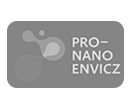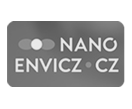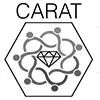Instrumentation of the Department of Structure and Dynamics in Catalysis
A: Major Equipment - Preparation
1) 500 MHz MAS NMR spectrometer Bruker Avance III HD 500 WB/US NMR (upgrade 2013)
- 7-mm N-P/H probehead
- 4-mm N-P/H-F probehead
- 4-mm X/Y/H probehead
- 3.2-mm N-P/H-F probehead
- 2.5-mm N-P/F-H probehead
2) Equipment for liquid phase synthesis
- Autoclave 0.55 l, 20 - 220 °C, 0 - 150 bar, Stainless steel DIN WNr. 1.4571/1.4404 (AISI 316Ti/316L)
- Autoclave 0.55 l, 20 - 220 °C, 0 - 150 bar, Hastelloy C22
- Autoclave 2.2 l, 20 - 250 °C, 0 - 200 bar, Stainless steel
- Autoclave 3.2 l, 20 - 220 °C, 0 - 150 bar, Stainless steel
- Speedwave four for synthesis of nanomaterials - Microwave digestion system with built-in, non-contact temperature and pressure measurements
3) UV-Vis-NIR spectrometer Perkin-Elmer Lambda 950
- Two integrating sphere attachments for diffuse-reflectance measurements at UV-Vis-NIR with spectralon coating
- Integrating sphere attachment for diffuse-reflectance measurements at NIR with coating by gold
- Harrick through flow cell for elevated temperatures for measurements with praying mantis
- Home-made through flow cell for elevated temperatures for measurements with integrating sphere
4) Three FTIR spectrometers Nexus 670 e.s.p. (Thermo Nicolet Co.)
- MKS detectors
- DTGS KBr
- ATR and reflectance accessories
- High-low pressure IR reactor In-Situ Research - Instruments, USA equipped by AvaSpec-2048FT Fast Trigger Fiber Optic UV-Vis Spectrometer Avantes and MS gas analysis.
5) Catalytic apparatuses
- Computerized catalytic reactors for hydrocarbon transformations equipped with gas chromatograph with GC (HP 5890, HP 6890, HP 5971A, HP 6850, Finnigan 9001 with GC-FID, TCD, MSD) and MS detection (GC-MS spectrometer Agilent, Quadrupole mass spectrometers QMA 125, QMG 421C, QMG 420)
- Computerized Microactivity-Reference catalytic reactors PIDENG&TECH with gas chromatography detection
- Computerized catalytic reactors for N2O/NO/NO2 abatement reactions with NO/NOx chemoluminescence analyzers VAMET, Analyzer Advanced Optima 200/Limas 11HW ABB, N2O analytical system Advance Optima Hartmann & Brown and GC detection
6) Photocatalytic apparatuses
- Liquid phase testing using UV or visible light
- Gas phase testing using UV or visible light
7) QUV Accelerated Weathering Tester and Q-Sun Xenon Test Chamber
- QUV Overview: Solar Eye Irradiance Control, Lamps: UVA-340, UV-B, Water spray system, ISO calibration
- Q-Sun Overview: Full-spectrum xenon arc lamps, The Solar Eye Irradiance Control System, Optical filters (Daylight, Window, Extended UV), A choice of irradiance set points (340 nm, 420 nm or TUV), ISO, ASTM &SAE compliance
B: Available Methods
1) Liquid phase bath synthesis
- Synthesis in 100 ml - 2.2 l autoclaves
- Acid or base corrosive environment
- Hydrothermal synthesis and preparation of inorganic materials including zeolites
- Modification of catalysts forms (acid, base, redox) by ion exchanges and impregnations
- Basic characterization of products (XRD, SEM, N2 adsorption)
2) Characterization of catalytic activity of acid and base heterogeneous catalysts
- Through-flow catalytic experiments, including elevated pressure
- Batch catalysts and kinetic testing (100 ml - 2.2 l autoclaves)
- GC and MAS spectroscopy analysis of products
3) Characterization of acid and base heterogeneous inorganic catalysts
- Characterization of acidic properties by TPD and FTIR spectroscopy of adsorbed probes
- Characterization of redox properties by TPR, FTIR spectroscopy and UV-Vis spectroscopy
- Characterization of sorption properties of catalysts, XRD, SEM
4) NMR spectroscopy of inorganic solids
- 500 MHZ MAS NMR spectrometer, N-P/H and Al/Si/H experiments
- Setup for treatment/evacuation of samples & sealing prior spectra measurement
5) UV-Vis-NIR spectroscopy in transition and diffuse-reflectance mode
- Measurement of liquids, powders, turbid media
- Measurement in transmission, reflection and diffuse reflection mode
- Harric and home-made through-flow cells for measurement at elevated temperatures and different gases
6) FTIR spectroscopy in transition and diffuse-reflectance mode
- Measurement in transmission and diffuse reflectance mode
- Home-made cells for measurement in different atmospheres and treatment of sampúles at elevated temperatures
- Through flow cell for in situ measurement at elevated temperatures
7) Separation of nanoparticles
- Gradient separations, in which the tubes are filled from top to bottom with an increasing concentration of a dense substance in solution.
- Determination of particle size distribution of solid particles, emulsions and bubbles
- Determination of the zeta potential of particles
8) Preparation of thin layers by dipcoating
- Coating of flat supports in controlled atmosphere
- Coating of tube supports up to 80 cm in length and 10 cm in diameter
9) Testing the photocatalytic performance of powders and layers
- Degradation of aqueous pollutants
- Degradation of gaseous pollutants according to ISO standards
10) Accelerated weathering testing of solid materials
- Testing the durability of bulk materials or layers and coatings on different substrates
- Test according to ISO, CEN, DIN and other standards
11) Determination of the texture and sorption properties of solids
- Determination of porosity of micro- and mesoporous materials
- Determination of surface area of thin films
12) Scanning electron microscopy
C: Auxiliary equipment
1) Ultracentrifuge Optima XPN-100 (Beckman Coulter)
- Maximum speed: 100,000 rpm, Maximum RCF (x g): 802,400, Speed control: ± 2 rpm of set speed (above 1,000rpm), Set temperature: 0 to 40°C,Ambient operating range: 10 to 35°C, Accel/decal: 10/11, Drive cooling: air-cooled
2) Analyzer of the particle size and zeta potential ZetaSizer NanoS, model ZEN1600 (Malvern)
- Cell for the measurement of the zeta potential of surfaces
3) Dip Coater 5
- Uniform deposition of layers on plates and similar objects by dipping and dragging into bath with solution.
4) Sorption apparatus ASAP 2010 (Micromeritics)
- Microporous option with three transducers
- Low-pressure system
5) Laboratory electric superkanthal furnace Model 2017S (Clasic CZ)
- Preparation and heat treatment of ceramics, glass phases and metals/metal alloys up to 1700°C under air or an inert atmosphere.
6) Extruder Multi-Gran, Model MG-55 ( FUJI PAUDAL CO)
- Manufacturing granules of ceramics, organic materials, polymers/biopolymers in form of cylinders of the diameter 1 to 3 mm adjusted by the selection of a die with proper openings
7) Planet laboratory mill Pulverisette 6 (Ilabo)
- for the milling of powders up to 500 g in weight.
8) Fiber Optic UV-Vis Spectrometers
- Two UV-Vis spectrometers AvaSpec-2048FT Fast Trigger Avantes
- UV-Vis spectrophotometer VWR
9) Scanning electron microscope Jeol JSM-5500 LV
10) TPD/TPR AMI-200 catalyst characterization system Altamira Instruments
11) Universal apparatus of in-house construction for studies of transport and reaction processes in inorganic membranes

















